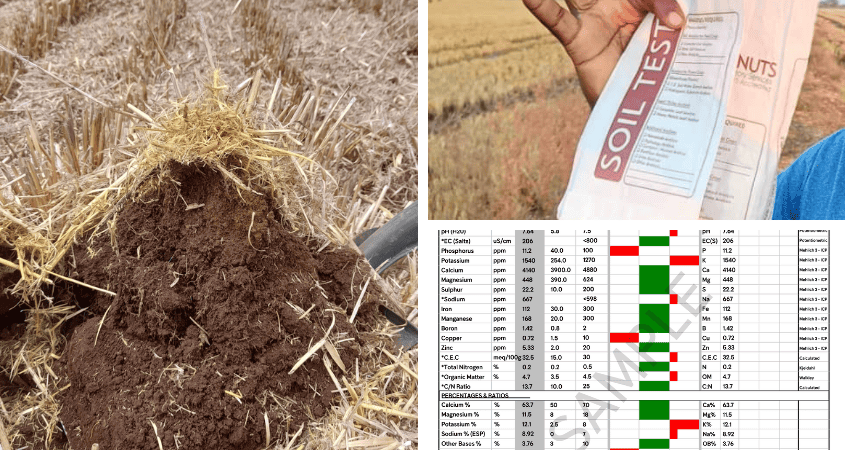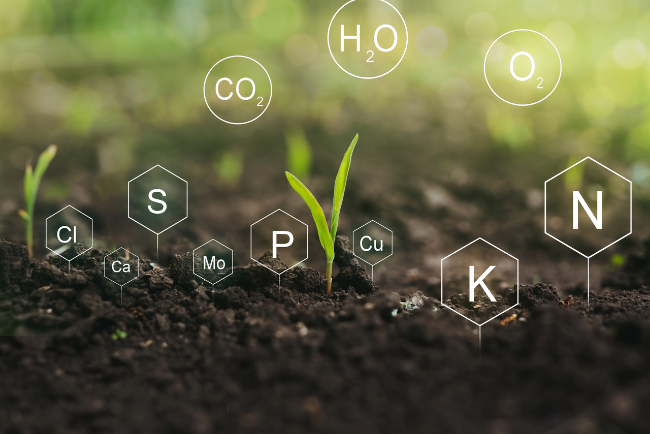
The physical, chemical, and biological aspects of soil health are fundamental to efficient modern agriculture, as they collectively form the foundation of a thriving and productive ecosystem. Today, let’s delve into the chemical aspects of soil health, which directly impact the availability and uptake of essential elements vital for plant health and productivity:
Nutrient content and availability are critical chemical components of soil health. Essential nutrients like nitrogen (N), phosphorus (P), potassium (K), and micronutrients are vital for plant growth. Maintaining a balanced nutrient profile ensures that plants access the elements they need to thrive.
Soil pH measures the acidity or alkalinity of the soil and is a key determinant of nutrient availability. Different crops have specific pH preferences for optimal growth, and maintaining the proper pH range ensures that essential nutrients remain available for plant uptake.
CEC reflects the soil’s ability to retain and exchange cations (positively charged ions) such as calcium, magnesium, and potassium. Soils with a higher CEC can hold more nutrients, ensuring their availability to plants over time. This is a critical factor in nutrient management for sustainable farming.

Soil organic matter, such as decomposed plant material and humus, enriches the soil by improving nutrient retention, water-holding capacity, and microbial activity. Organic matter also serves as a slow-release source of essential nutrients, supporting plant health and soil fertility.
Soil salinity measures the concentration of salts in the soil. While some level of salinity is natural, excess salt can hinder water uptake and cause salt stress in plants, reducing growth and productivity. Monitoring and managing salinity are essential for maintaining chemical balance in soils.
At Cropnuts, our mission is to understand and enhance these chemical dimensions of soil health, alongside the physical and biological facets, through our Soil Health Care Program. By providing farmers with actionable insights, tailored soil testing, and sustainable soil management strategies, we empower them to nurture more vibrant and productive soils. Together, we contribute to prosperous and resilient farming communities, laying the foundation for a sustainable agricultural future.
For personalized guidance on soil health and testing, contact our experts at support@cropnuts.com.
Grow more with less
#agronomy #soilhealth #soilscience #sustainability #agriculture
Order our services and get to know how to improve your soil for better yeilds.